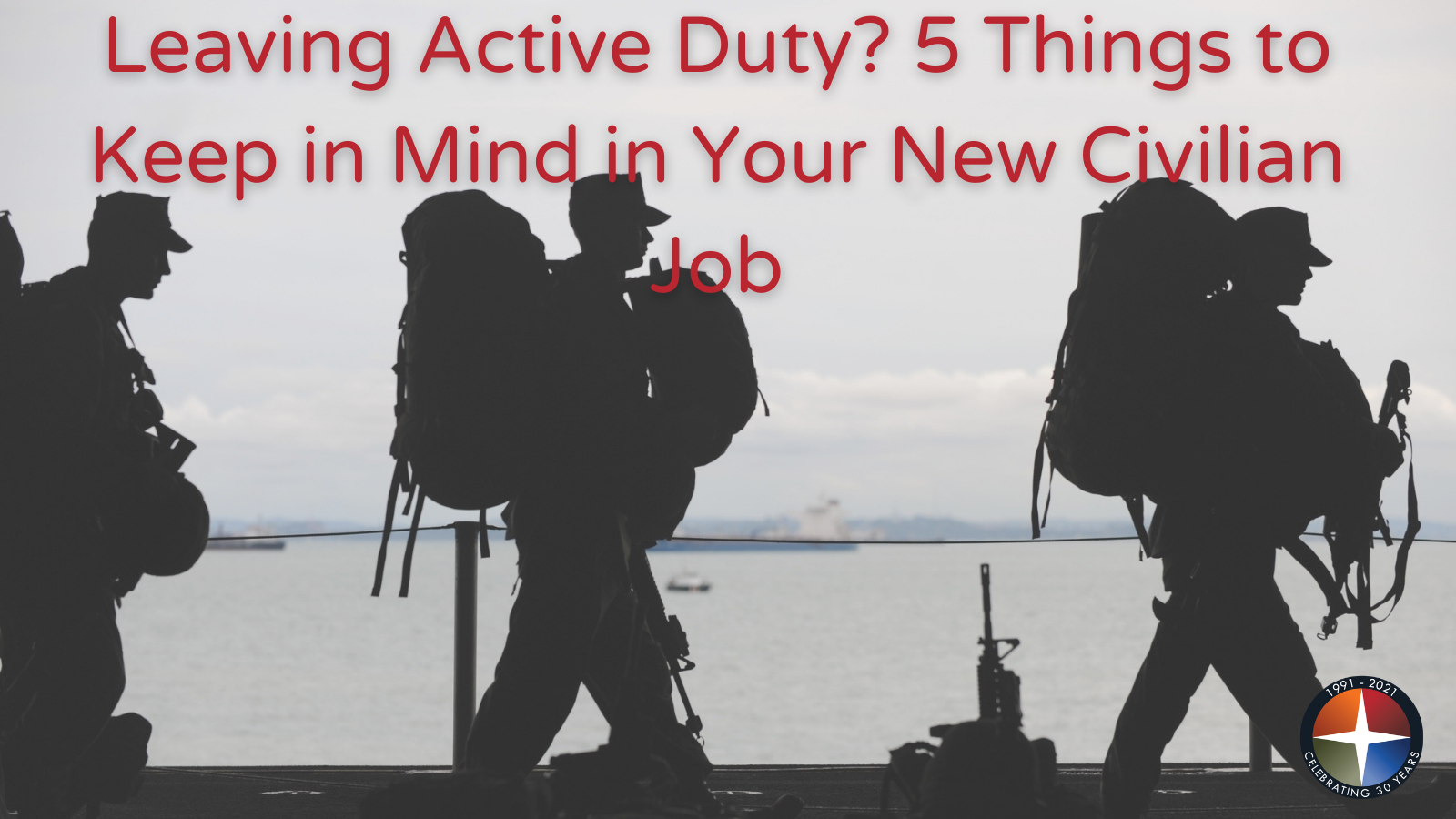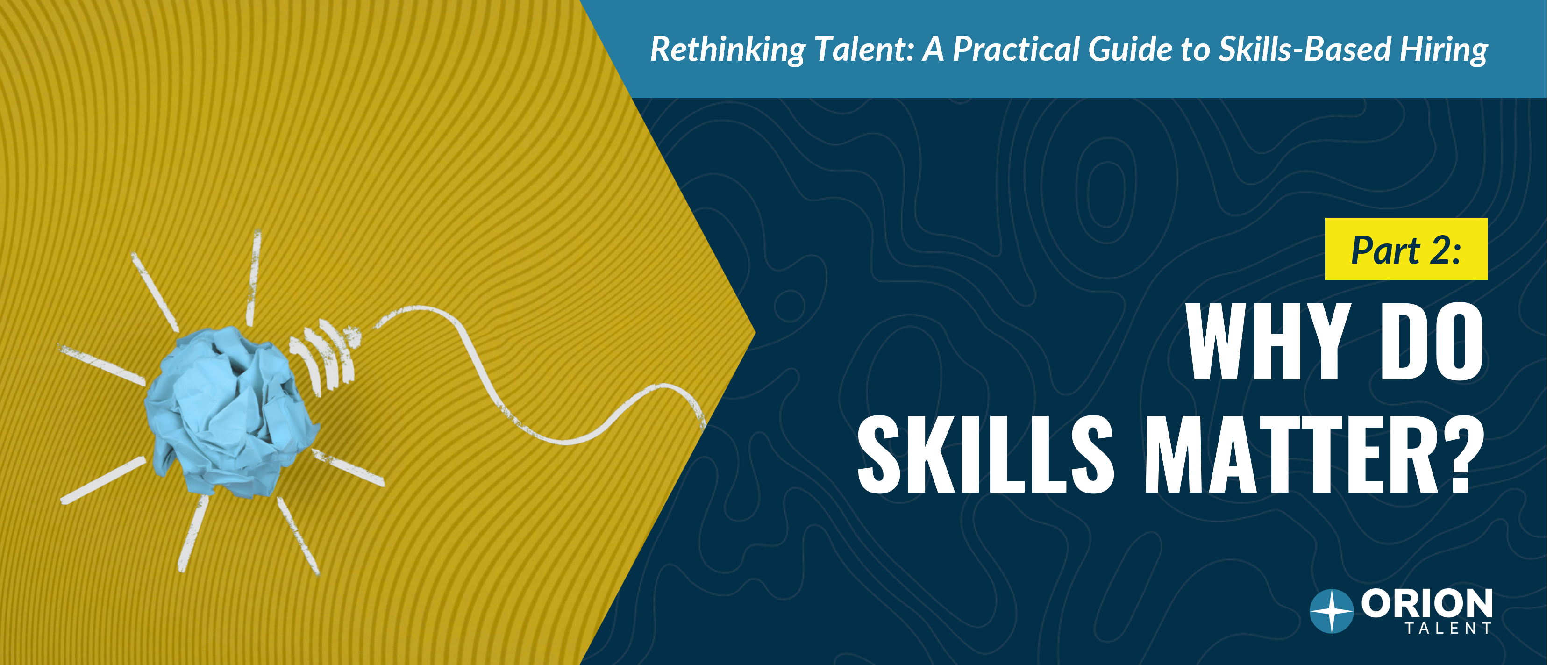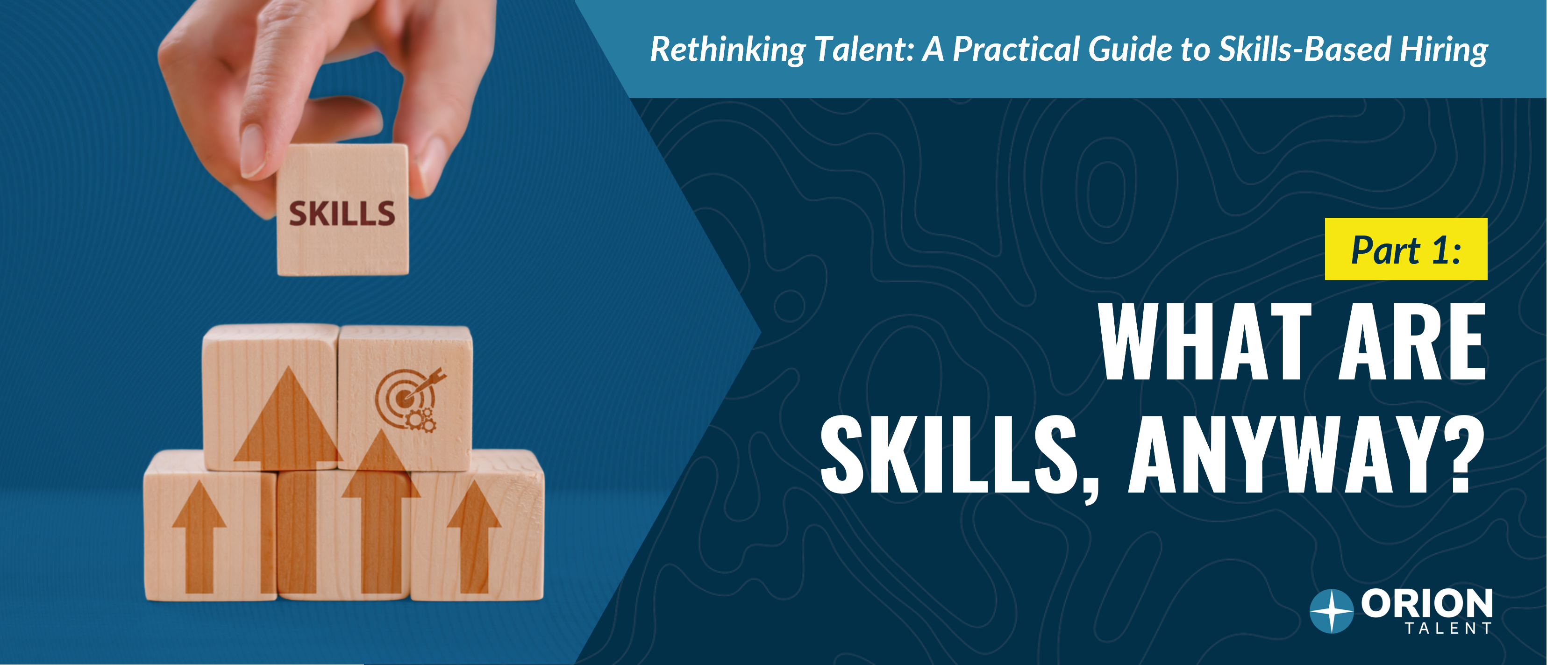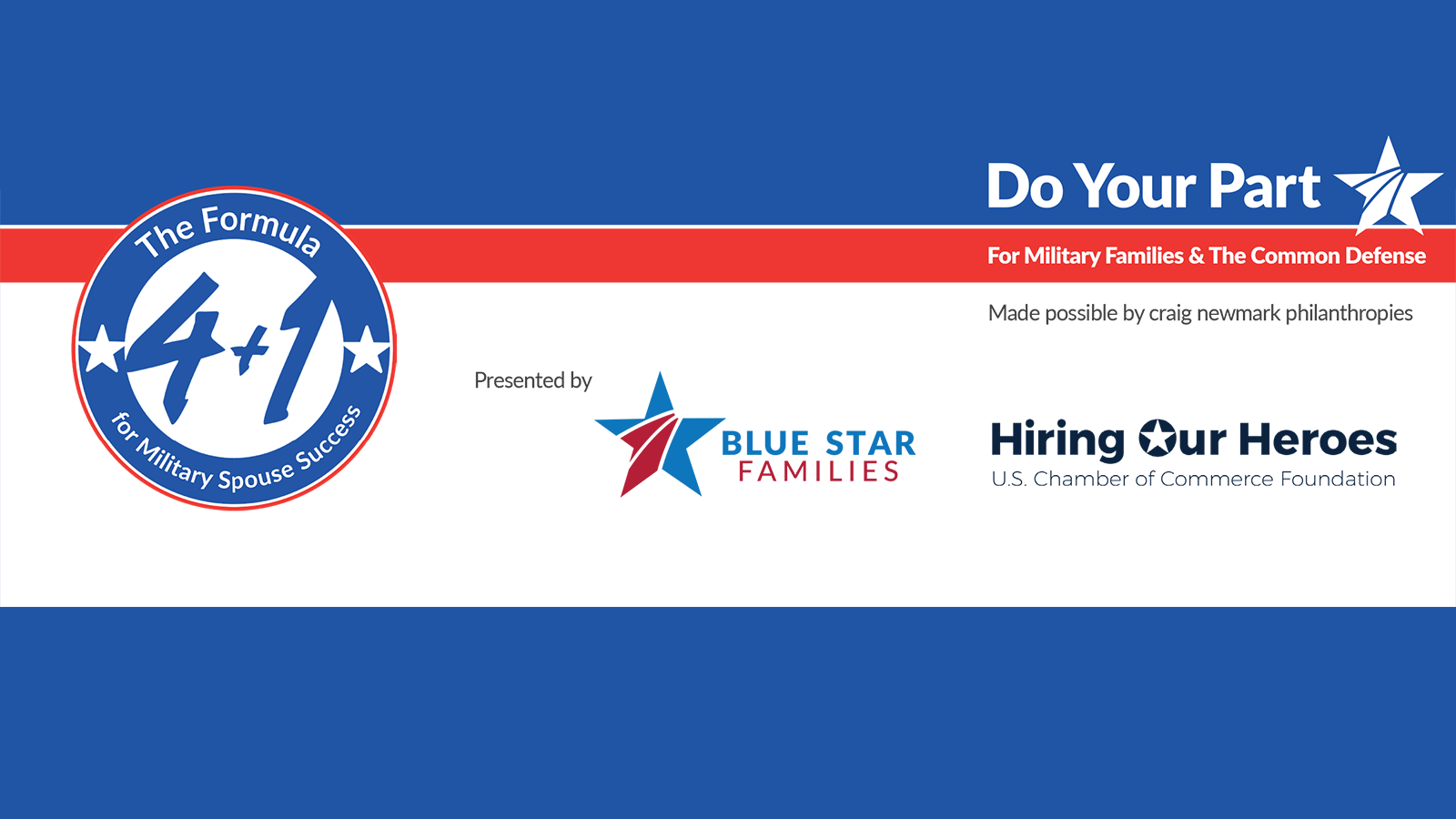
Whether you served for one enlistment, until retirement, or somewhere in between, you may be at a point in your career where you’ve decided to transition from active duty to the civilian workforce.
Although differences in organizations are expected, it may be worth considering the potential “reverse culture shock” you may encounter when transitioning into your new job. Over the course of my research, personal experiences, and conversations with veterans from all rank levels and branches of services, here are a few takeaways I’d like to share.
1. Your veteran service may be appreciated, but it may not fully be understood.
You will likely see questions about your veteran status during either the application or interview process. Many organizations even have veteran hiring initiatives, because they realize that you have highly desirable traits such as work ethic, adaptability, and attention to detail. However, that employer may not understand the differences between an 0311 (infantry) Marine and a 4421 (legal services) Marine, or those of a “Flight” Chief and a Chief “Petty Officer.”
Consider your service branch’s achievement medal. For some ranks, a servicemember would be extremely proud to be awarded one, while other ranks or experience levels may consider it beneath them. The reason you know this is because of ?context. Your years of experience are filled with military context, which is understood across different ranks, occupational specialties, and even service branches. However, you should not expect civilian employers to fully understand the weight of your previous military responsibilities, achievements, or capabilities.
2. Your level of responsibility may decrease at first.
When I think of a platoon sergeant, aside from reasonable exceptions, I imagine someone who has been in the military for at least eight years, has seen at least two combat deployments, and has exceptional experience leading 40+ Marines or Soldiers. Now imagine being the hiring manager at a furniture company, the foreman at a construction site, or the sales director of an insurance agency. You probably feel that you’re qualified for immediate assignment to upper or middle management, and you may be right. However, in order to prove how your military resume applies to your current position, you may have to begin your employment at a lower level and then prove yourself in order to move up. Just like your time in the military, try to remember that rank is not a limitation; it is a process.
3. The culture of your organization may be different from your military unit
In the military, servicemembers spend nearly all of their time together. You probably started each morning by going to unit physical training (PT), getting a workout in before the day began. You might then have breakfast together at the DFAC or galley (if you had time), or maybe hit up the “gut truck” when it stopped by your shop that morning.
At work, you played music loudly, made group runs to the PX for energy drinks, and went to chow with your coworkers. I’m also willing to bet that your workday consisted of hilarious conversation in the smoke pit, a spirited debate about In-N-Out vs. Whataburger (In-N-Out, by the way), and probably an impromptu wrestling match. The day ended with an equal mix of complaining about work and making plans about what everyone was going to do that evening. Go to a bar? Hit the gym? Order pizza and watch the game at Buffalo Wild Wings? You and your coworkers (friends) spent nearly 24 hours together each day (especially if you lived in the barracks), and you grew close with them. Some of them you’ll remain in contact with for years after you move on.
In the private sector, there is no unit PT to start the day with sweat, misery, and camaraderie. There aren’t any formations or quarters to hear about the day’s plan, and awards or promotions probably won’t be as celebrated or commonplace. You need to expect a job where the priority of your coworkers is to...do their job. And that’s okay. You’re certain to find friendly coworkers with whom you have plenty in common, but depending on your industry, they may not necessarily be in your same age group, fitness level, or area of interests.
You also need to realize that your military coworkers supported you in ways you may not have realized during that time. You could call them any time, day or night, for any reason. You traded duty or watch shifts, loaned each other money for purchases, and deployed to austere and dangerous environments with full reliance on his or her support. In the civilian workforce, veterans often mistakenly refer to their coworkers as selfish, lazy, or unmotivated. Remember that your military service was ?anything but a job. It was the most challenging, rewarding, terrible, unbearable, and unique experience you may ever have. And now you have a ?job. That’s okay, too.
4. The culture of boss.
Similar to your coworkers, the culture of your leadership will also be quite different. The invasive leadership styles of your Flight Chief or NCO probably asked you questions about your finances, personal relationships, precise details of your holiday leave plans, and cursed you out for not getting a flu shot. You may come to miss that style of leadership, and even mistake civilian leadership as laziness or apathy. Remember that nobody at ‘Hometown Auto Sales’ believes their employees are a “car salesman 24/7,” nor does ‘Hometown Insurance’ believe that “every agent is a rifleman.” Further, your new boss will probably not reward the team with pizza and beer, or give weekend safety briefs on Friday afternoons. Nor should they be expected to. You don’t need your boss to perform as a Command Master Chief any more than he or she needs you to perform as a Technical Sergeant. Be ?you?. Be the best employee you can, and find ways to learn the organizational culture of the company.
5. The fulfillment may not be the same.
Veterans don't often talk about how they miss their specific ?job? in the military. Whether they were a mechanic, engineer, or in the infantry, veterans most often express the people / camaraderie and the mission as what they miss the most about their military service. The reward of working together to solve complex problems, deploy as a team, endure unique hardships, and come back home to train the next generation is something that can’t be replicated.
In the private sector, you may not work in an industry for which you have a strong level of interest or passion. Additionally, you may not work with other employees who share your same interests or age group. Your spouses may be less likely to hang out together, your children probably won’t attend the same school or daycare, and you are highly unlikely to live in the same apartment complex or neighborhood as your coworkers.
So be intentional about your transition from active duty. For the first time in a long time, you get the opportunity to be selfish and call the shots around your decision. Choose location, industry, pay, job title, or any other factors carefully. And if the worst comes to worst? I hear that prior-service recruiters are more than happy to take your call.
BLUF: Remember that new guy in the unit who wouldn’t stop talking about how good his old unit was? How everything at that unit was so much better? When you get to your civilian job -- don’t be that guy.
If you are ready to transition to the civilian workforce or are a veteran looking to make a career change, register on our site to get started with a Recruiter today.
Author: Cody Brockelmeyer
Matthew "Cody" Brockelmeyer was born in Pasadena, California, but spent much of his childhood in Roseburg, Oregon. After high school, he enlisted into the Marine Corps as a Legal Services Specialist where he served in Okinawa, Japan, the Pentagon, and Afghanistan. After completing his undergraduate degree, he earned his commission and was awarded the MOS of Ground Supply Officer. Since that time, he completed an MBA, two additional deployments to the Middle East, and then served as the Operations Officer for the University of Notre Dame's NROTC program. Most recently, he completed a Doctor of Business Administration degree with a focus on the cultural issues that veterans face when entering the private workforce.
Archives
- February 2026
- January 2026
- December 2025
- November 2025
- October 2025
- September 2025
- August 2025
- July 2025
- June 2025
- May 2025
- April 2025
- March 2025
- February 2025
- October 2024
- May 2024
- March 2024
- February 2024
- January 2024
- December 2023
- November 2023
- October 2023
- September 2023
- August 2023
- July 2023
- June 2023
- May 2023
- April 2023
- March 2023
- February 2023
- January 2023
- December 2022
- November 2022
- October 2022
- September 2022
- August 2022
- July 2022
- June 2022
- May 2022
- April 2022
- March 2022
- February 2022
- January 2022
- December 2021
- November 2021
- October 2021
- September 2021
- August 2021
- July 2021
- June 2021
- May 2021
- April 2021
- March 2021
- February 2021
- January 2021
- December 2020
- November 2020
- October 2020
- September 2020
- August 2020
- July 2020
- June 2020
- May 2020
- April 2020
- March 2020
- February 2020
- January 2020
- December 2019
- November 2019
- October 2019
- September 2019
- August 2019
- July 2019
- June 2019
- May 2019
- April 2019
- March 2019
- February 2019
- January 2019
- December 2018
- November 2018
- October 2018
- September 2018
- August 2018
- July 2018
- June 2018
- May 2018
- April 2018
- March 2018
- February 2018
- January 2018
- December 2017
- November 2017
- October 2017
- September 2017
- August 2017
- July 2017
- June 2017
- May 2017
- March 2017
- February 2017
- January 2017
 RSS Feed
RSS Feed




















